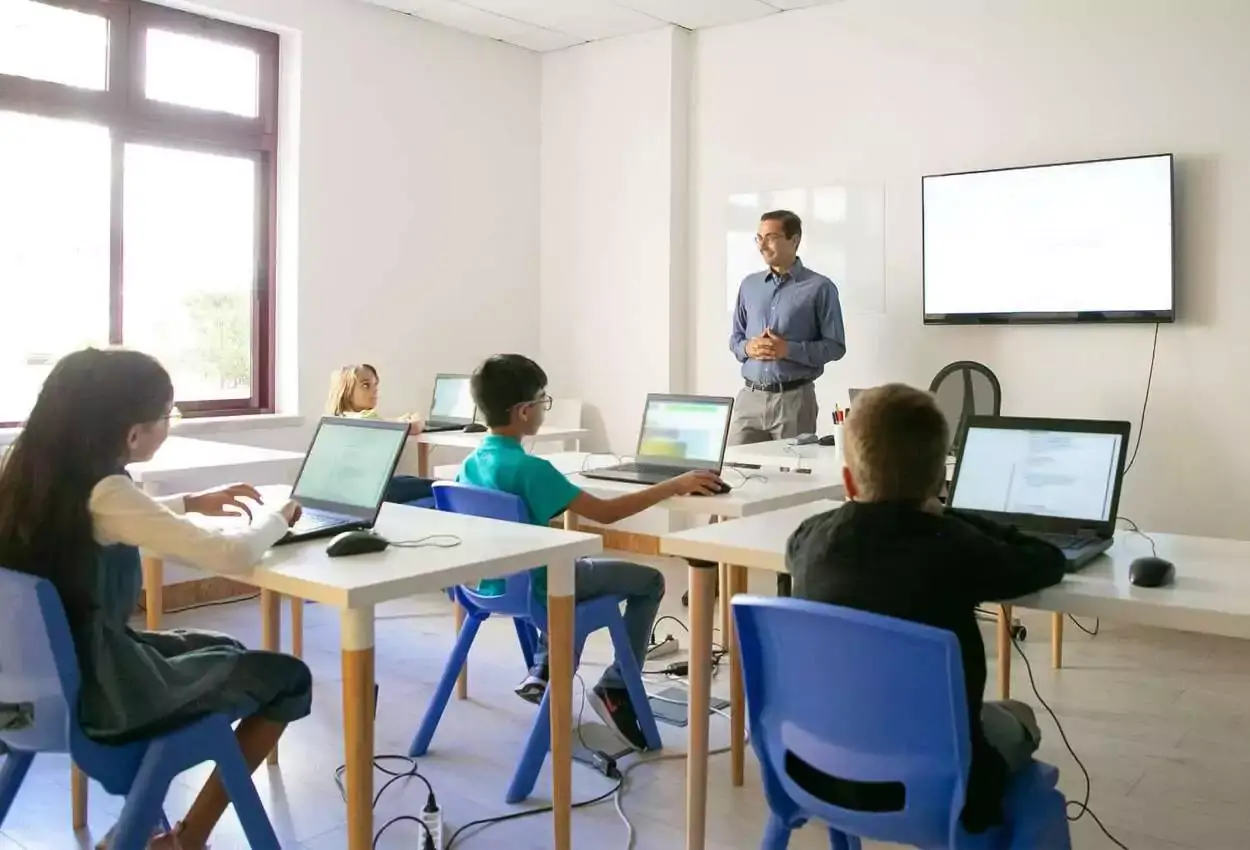In the shifting landscape of education, one constant remains: the critical role of teachers. Yet, the demands placed on educators today are unlike any seen in previous generations. Teachers are no longer just content experts or disciplinarians—they are facilitators, mentors, digital navigators, mental health first responders, and cultural bridges. As classrooms evolve into hybrid, inclusive, and tech-integrated environments, the need for robust, forward-thinking teacher training has never been more urgent. To truly empower educators for tomorrow’s classroom, training must evolve from routine professional development into a dynamic, human-centered, and future-focused process.
The Changing Face of the Classroom
Today’s classrooms are more diverse, digitally enabled, and socially complex than ever before. Students arrive with varied learning needs, backgrounds, and access to technology. Meanwhile, global challenges—from pandemics to climate change—are influencing what and how children learn.
Teachers must be able to differentiate instruction for neurodiverse learners, integrate technology with purpose, and promote global citizenship—all while nurturing emotional resilience in their students and themselves. This expanding skill set cannot be acquired through outdated, one-size-fits-all training models. It demands a reimagining of how we equip teachers from the start of their careers and throughout their professional journeys.
Beyond Certification: Continuous, Contextual Learning
Traditional teacher education often focuses heavily on theory and classroom management, with limited real-world application until educators are already on the job. Today’s realities require continuous learning that is adaptive, practice-based, and grounded in lived classroom experiences.
Empowered educators must be provided with:
- Ongoing mentorship and peer learning networks
- Access to micro-credentials and modular learning
- Exposure to culturally responsive pedagogies
- Practical training in mental health literacy, digital tools, and project-based learning
Countries like Singapore, Finland, and Canada lead the way by investing significantly in ongoing professional development and teacher autonomy. In these systems, teachers are viewed not only as deliverers of curriculum but as co-creators of innovation within their schools.
Integrating Technology Without Losing the Human Touch
Technology is not a substitute for good teaching, but rather a tool to enhance it. From AI-driven learning analytics to gamified platforms and virtual reality, the tools available to educators are expanding rapidly. However, without proper training, these tools can overwhelm rather than empower.
Training teachers for tomorrow’s classroom must include not only how to use technology, but how to use it pedagogically—to foster creativity, critical thinking, and engagement. Importantly, this training must also uphold the emotional and social aspects of teaching. Teachers need to know when to put the screens away and connect meaningfully with their students.
Hybrid learning models, flipped classrooms, and asynchronous learning require teachers to become learning architects—designers of experiences that happen both inside and outside traditional classrooms. The shift is as much about mindset as skill set.
Emotional Intelligence and Well-being
Teaching is deeply human work. Yet, educators often operate under immense stress, high expectations, and emotional strain. Burnout and attrition are rising concerns globally.
Empowering educators means supporting their well-being, too. Training programs must incorporate strategies for:
- Managing stress and workload
- Setting healthy boundaries
- Practicing mindfulness and emotional regulation
- Building supportive professional communities
When teachers are emotionally supported, they’re better positioned to foster safe, nurturing environments for their students. This is particularly vital in schools dealing with trauma, poverty, or systemic inequality.
Culturally Responsive and Inclusive Practices
Tomorrow’s classrooms will be increasingly global and multicultural. Teachers must be prepared to recognize their own biases, create inclusive environments, and adapt lessons for students from diverse cultural, linguistic, and socio-economic backgrounds.
Empowering teachers involves helping them develop cultural competence—not only through training, but through lived collaboration with diverse communities and educators around the world. International teacher exchanges, virtual co-teaching projects, and local immersion initiatives can all foster deeper empathy and contextual understanding.
Moreover, inclusivity must extend to learners with disabilities, learning differences, and mental health challenges. Training in Universal Design for Learning (UDL), assistive technologies, and individualized instruction strategies equips teachers to meet every student where they are.
A Call for Systemic Change
Empowering educators is not the sole responsibility of teachers themselves—it requires systemic support. Governments, education ministries, and institutions must:
- Invest in meaningful teacher development programs
- Recognize and reward innovation and leadership in the profession
- Involve teachers in curriculum development and policy decisions
- Ensure equitable access to training resources, especially in underserved regions
Policymakers must shift the narrative around teaching—from a profession defined by sacrifice to one recognized for its expertise, innovation, and impact. This begins with listening to teachers themselves.
The Future Is Teacher-Powered
If we want students to become adaptable, ethical, curious, and resilient citizens of tomorrow, we must first cultivate those same traits in their educators. Teachers are the heartbeat of education systems. Investing in their growth, well-being, and professional freedom is not just a strategy—it is a moral imperative.
As the world changes, so too must the ways we prepare those who guide our children. Empowering educators means believing in their potential, equipping them with tools for tomorrow, and trusting them to co-create the future of learning.



